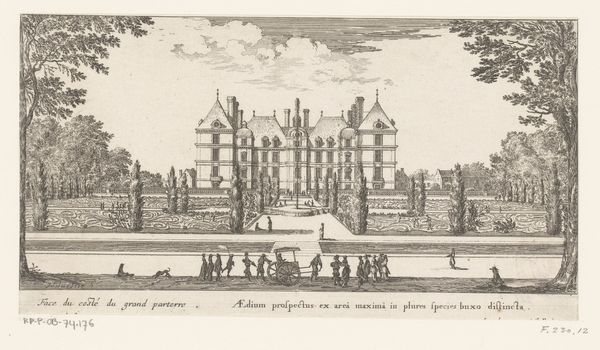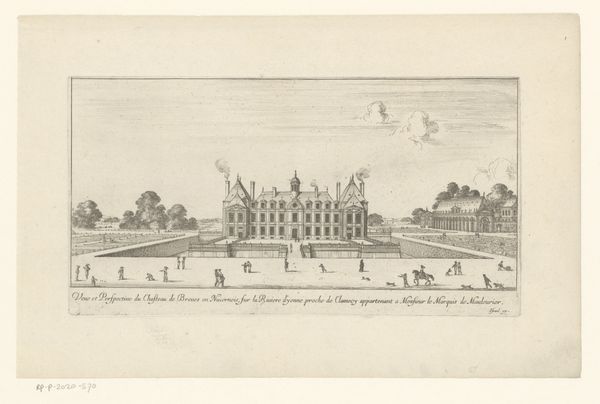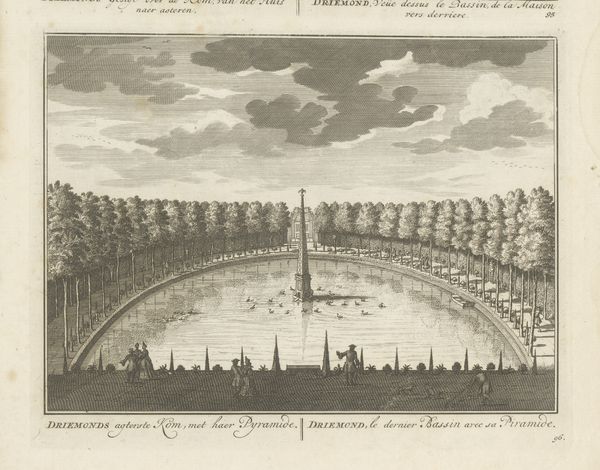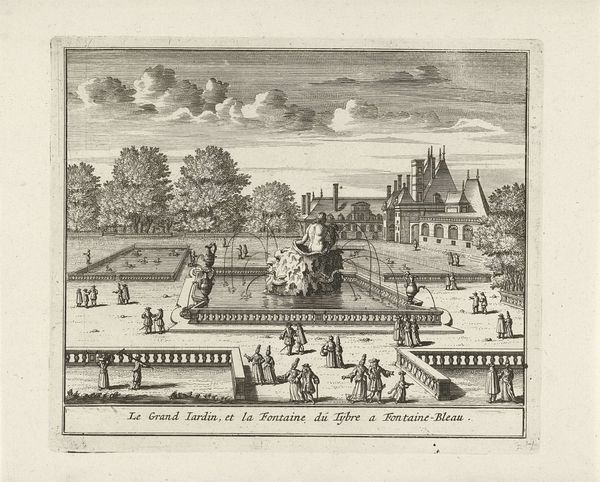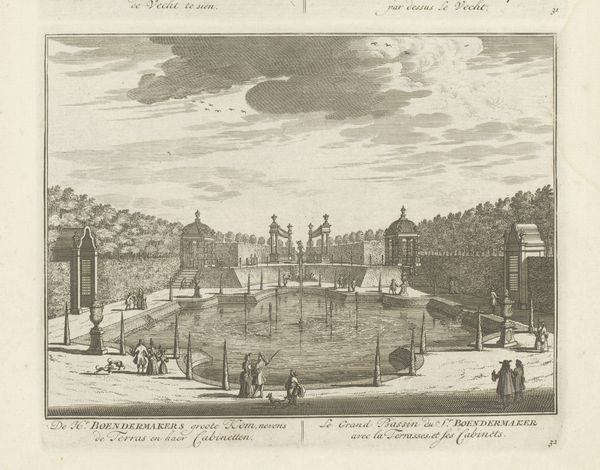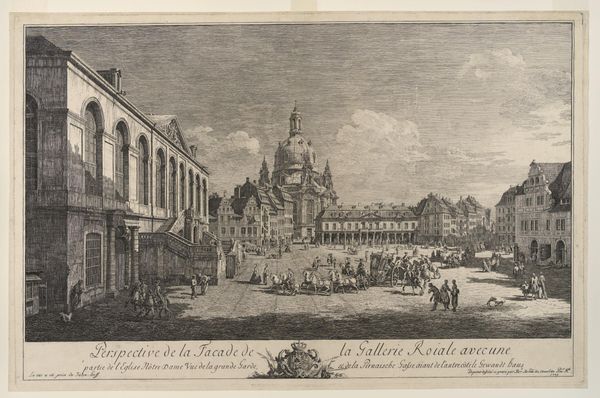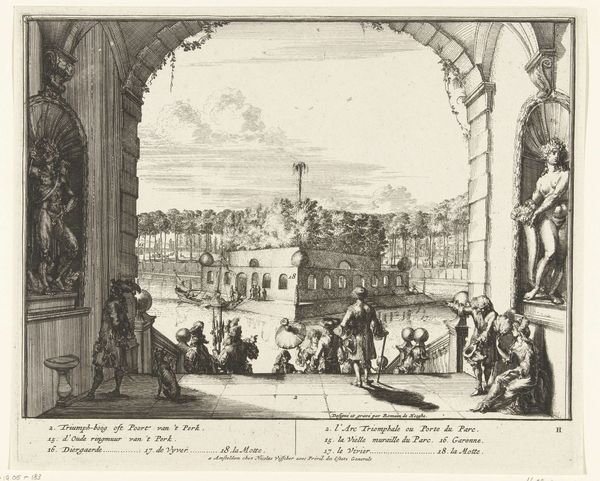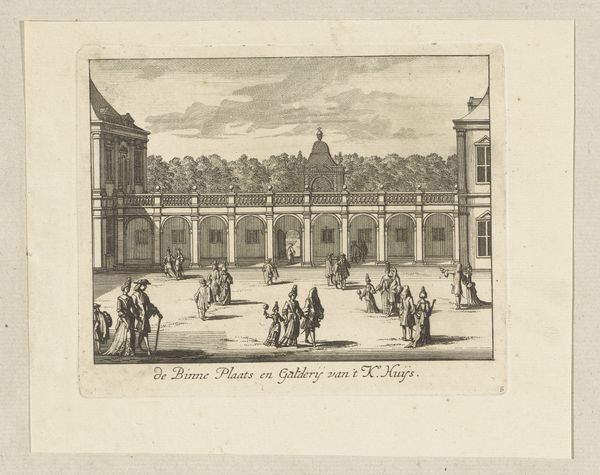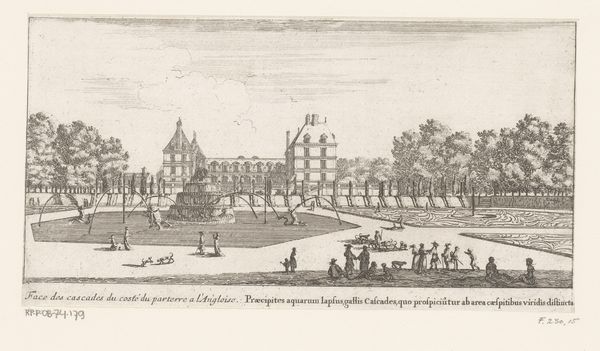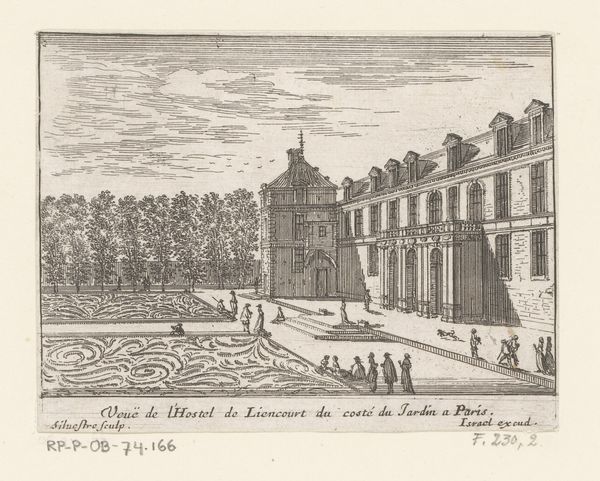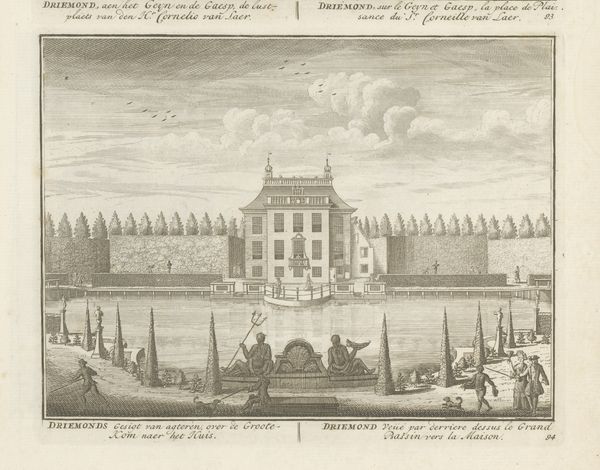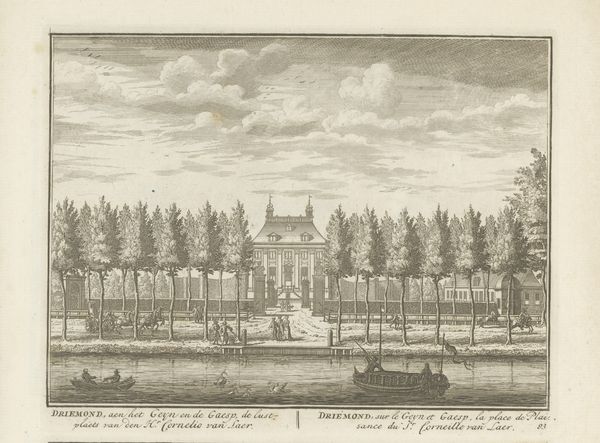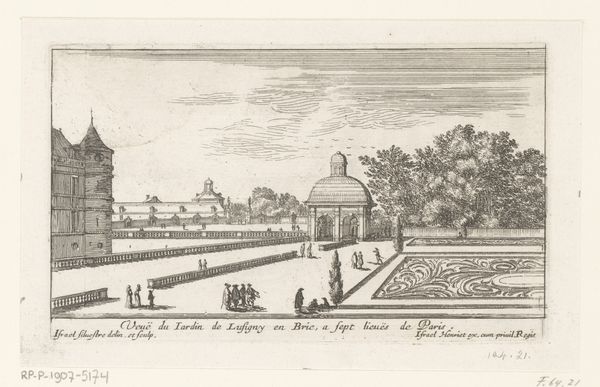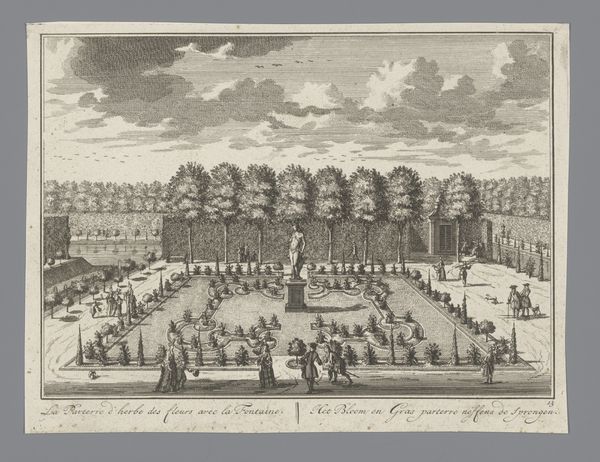
drawing, print, pen, engraving
#
drawing
#
baroque
# print
#
pen illustration
#
pen sketch
#
old engraving style
#
landscape
#
pen-ink sketch
#
pen work
#
pen
#
cityscape
#
engraving
Dimensions: height 89 mm, width 110 mm
Copyright: Rijks Museum: Open Domain
This print of the Folie-Rambouillet pavilion was made by Israel Silvestre sometime in the mid to late 17th century, using the intaglio process. Intaglio is a form of printmaking in which the image is incised into a plate, usually made of copper. Ink is then applied to the surface and then wiped away, leaving ink only in the recessed lines. The plate is then pressed against a sheet of paper, transferring the image. The degree of detail Silvestre achieved is remarkable. But for me, the real interest is in the social context that this technique implies. Intaglio printing allowed for the relatively quick reproduction of images, and the dissemination of aesthetic ideals. This print, therefore, is not just a representation of architecture, but an advertisement for a lifestyle. It speaks to the burgeoning culture of consumption that took hold in Europe during this period, and the desire for even ordinary people to have access to luxury goods and experiences. It reminds us that even seemingly straightforward images can be deeply embedded in material culture and the modes of production.
Comments
No comments
Be the first to comment and join the conversation on the ultimate creative platform.
